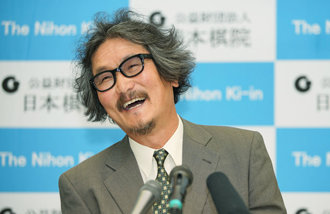[Opinion] North Korean Defector Writer
[Opinion] North Korean Defector Writer
Posted March. 11, 2004 23:56,
Kim Dae-ho, 45, who worked for a uranium-refining facility in North Korea, arrived in Korea in April 1994. In the interview with Shin Dong-a, which he had only five days after his arrival, he revealed, My former workplace, Namcheon United Chemical Purifier, has treated approximately 200,000 tons of uranium ore annually to produce 120 tons of pure uranium. One hundred-twenty tons of refined uranium can produce approximately 20 nuclear bombs. However, at that time, the press was only concerned about another North Korean defector family, Yeo Man-chul, and did not regard his disclosure with deep concern.
As North Korea and the United States consented to the Geneva fundamental agreement in October 1994, the nuclear crisis seemed to have been alleviated. People took an optimistic view that North Korea would abandon its nuclear development if Korea, Japan, and the U.S. continue to grant economic support and establish a light-water reactor in North Korea. The three countries absent-mindedly faced the second nuclear crisis in October 2002 as North Korea admitted about its uranium nuclear development. Wendy Sharman, who took charge of North Korean policy mediation during the Bill Clinton administration, pointed out, It is hard to understand that Korean citizens show an attitude of ignoring the nuclear intimidation of North Korea.
Kim has said that the indifference and ignorance of Korean society to the realities of North Korea has been his biggest frustration. It is the reason why he started up with a writing piece based on his experience of participating in nuclear development. However, his novel released in 1997, Azalea Flower in Mountains of Yongbyon, could not avoid the restraint of the relevant intelligence agencies. Kim testified that he even wrote down the memorandum, I will not disclose North Korea nuclear related stuff anymore. Recently, Kim, who underwent such a horrible experience, has released his second book, Azalea Flower Does Not Bloom in Mountains of Yongbyon, with a firm resolution that he would not surrender to any outward pressure.
Most of the North Korean defectors have strong antipathy and distrust toward the North Korean regime. They assert that in order to meet with their families left in North Korea, the regime has to be altered first. There are many defectors who have organized a group to pursue the modification of North Korea. How long can the government prevent their activities and how much would it be helpful to the unification of the two Koreas? The more the government is concerned about this needless work, the bigger the bias and misunderstandings of Korean citizens will become.
Editorialist Song Moon-hong, E-mail: songmh@donga.com







